News
Nestlé gets rights to CMPA test
3 Jun 2016Nestlé Health Science has announced that it has entered into a strategic collaboration with DBV Technologies, headquartered in Montrouge, France, aimed at developing and bringing to market DBV’s patch-test tool for the diagnosis of Cow’s Milk Protein Allergy (CMPA) in infants.

Nestlé Health Science has announced that it has entered into a strategic collaboration with DBV Technologies, headquartered in Montrouge, France, aimed at developing and bringing to market DBV’s patch-test tool for the diagnosis of Cow’s Milk Protein Allergy (CMPA) in infants.
CMPA is a difficult to diagnose condition, Nestlé notes, which impacts up to 2-3%1 of infants and young children during a critical stage of their development. DBV will leverage its proprietary Viaskin technology platform to develop an innovative, ready-to-use, standardised atopy patch-test.Today, Nestlé says that CMPA is often missed in the primary care settings due to the non-specific nature of symptoms associated with the condition, such as eczema, reflux, constipation, diarrhoea, crying and others. In 2015, Nestlé Health Science made a first step forward in addressing this difficulty through the Cow’s Milk-related Symptom Score (CoMiSS) awareness tool, developed by leading international experts to help healthcare professionals earlier recognise and assess symptoms that may be related to CMPA in infants and young children.In the future, Nestlé claims that DBV’s patch-test will enable early and accurate diagnosis of the condition, leading to early nutritional intervention, thereby creating a strong fit with Nestlé Health Science’s nutritional solutions that the company says helps meet the needs of babies and children with food allergies and intolerances (Althéra, Alfaré, Alfamino).Under the terms of the agreement, DBV is granting Nestlé Health Science exclusive worldwide commercialisation rights of DBV’s diagnostic tool. Nestlé Health Science will make an upfront payment of €10 million. DBV will be responsible for the development stages, including industrialisation and regulatory submissions. Moreover, DBV is eligible to receive development milestones, and if approved, sales milestones and royalty payments on sales.“This innovation can become the breakthrough diagnostic for CMPA,” said Greg Behar, CEO of Nestlé Health Science. “Early diagnosis and nutritional intervention helps get infants happily back on the path of healthy development, alleviate the anxieties of parents, and reduce healthcare costs. Our reach in the field of paediatric allergy makes Nestlé Health Science an ideal commercialization partner for DVB’s innovative diagnostic patch. This collaboration is another step in our strategy of advancing the role of nutrition through science-based innovation.”“Improving the lives of those suffering from food allergies is DBV’s mission, and through this exciting partnership with Nestlé Health Science, we are further showcasing our portfolio of potentially transformational and cutting-edge products,” said DBV Technology’s Chief Executive Officer, Dr. Pierre-Henri Benhamou. “Combining DBV’s innovative and proprietary technology with Nestlé Health Science’s global presence and expertise in nutritional therapies is a synergistic approach that we believe has the potential to improve the overall health of our patients.”Related news
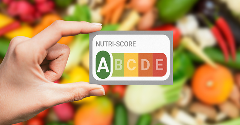
Danone removes NutriScore from products
20 Sep 2024
Following an algorithm update that gives some of its sweetened drinks a worse score, Danone has removed the front-of-pack label, NutriScore, from all of its products – putting profit before public health, say campaigners.
Read more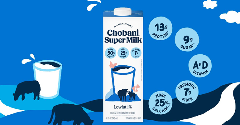
Chobani develops shelf-stable, prebiotic-enriched Super Milk
12 Sep 2024
Chobani has launched a prebiotic-enriched, shelf-stable, high-protein dairy milk to support people in disaster zones who need a nutritious drink that does not require refrigeration.
Read more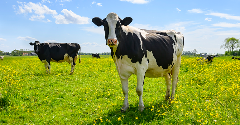
Tesco trials methane mitigation supplement for dairy cattle
5 Sep 2024
Tesco is trialing a methane-reducing feed supplement for one of its key UK dairy farms, sustainable UK milk producer Grosvenor Farms.
Read more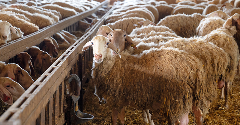
Sheep and goat plague: A new threat to Greece’s feta production
27 Aug 2024
A recent goat and sheep plague outbreak threatens feta production in Greece. The flagship product accounts for roughly 10% of the country’s food exports, but Greek authorities say there is no cause for concern.
Read more
Nestlé develops a new fat reduction method for dairy ingredients
26 Aug 2024
A Brazil-based Nestlé research and development team has developed a way to reduce the fat in milk powder by as much as 60%, without impacting the key characteristics that consumers enjoy.
Read more
Dutch court rules against plant-based butter brand ‘Roombeter’: Only dairy products allowed to use the word ‘cream’
26 Jul 2024
A Dutch court has ruled against Upfield’s plant-based butter, Roombeter, stating that its use of the word ‘room’ (cream) in the product name violates European regulations that protect dairy-related terms allowed for dairy products only.
Read more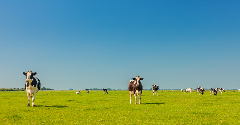
How will Denmark’s 2030 carbon tax impact farming?
12 Jul 2024
Denmark has announced plans to implement Europe’s first carbon tax on agriculture from 2030, targetting the farming sector’s CO2 emissions. How will it be implemented and how have farmers reacted?
Read more
Sweden updates front-of-pack Keyhole labelling rules
11 Jul 2024
The Swedish Food Agency has announced updates to the voluntary Keyhole logo, used in four Nordic countries, following recommendations to improve nutrition labelling.
Read more
Consumers dislike faba beans’ sensory profile
3 Jun 2024
Consumers display low acceptance of faba beans, with sensory properties such as bitterness a core concern, a study suggests. However, for product varieties such as cocoa-free chocolate, this attribute could prove to be a benefit.
Read more
Food scientists uncover new way to preserve nutrient and flavour quality
29 May 2024
Researchers have developed a method that guarantees food safety for low-moisture products, such as dried milk, while maximising quality by retaining vitamins, minerals, and flavours, they say.
Read more